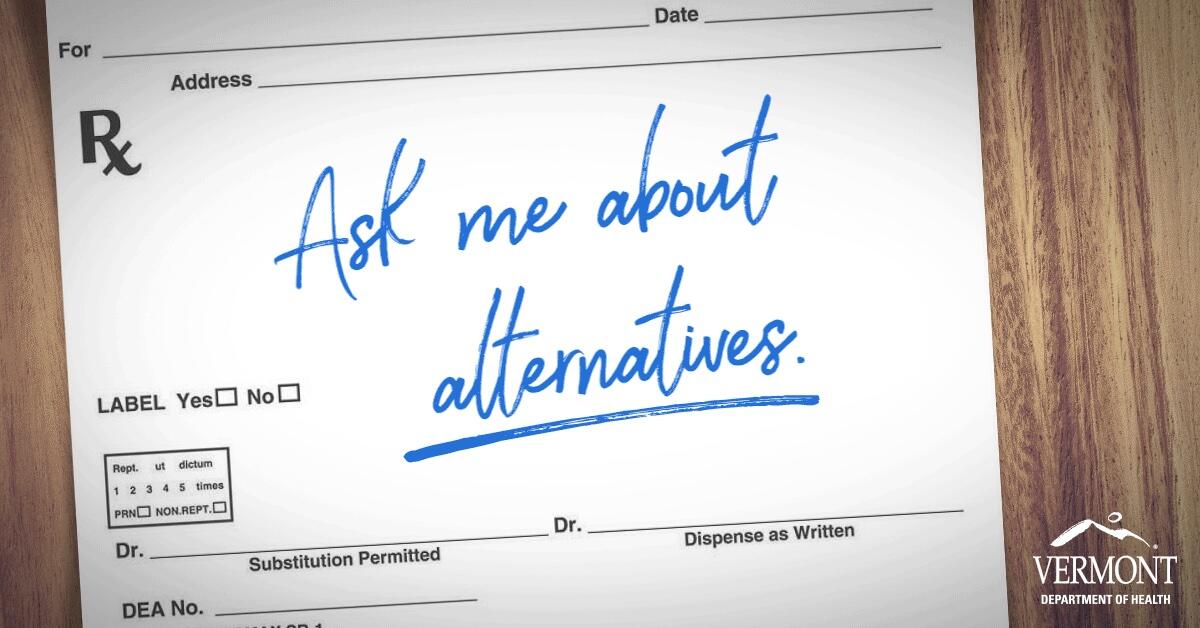Opioids: What you need to know:
Prescription opioid pain medications are a growing problem—both in Vermont and nationwide. There were nearly five times the number of overdose deaths involving prescription opioids in 2020 than in 1999. In 2020, almost 24% of all U.S. opioid overdose deaths involved a prescription opioid. More than 263,000 people have died in the U.S. from overdoses involving prescription opioids since 1999. Overdose is not the only risk related to prescription opioids. Anyone who takes prescription opioids can become addicted to them.
So, what can you do to protect yourself and others? There are four main things to remember when you have an opioid prescription.






